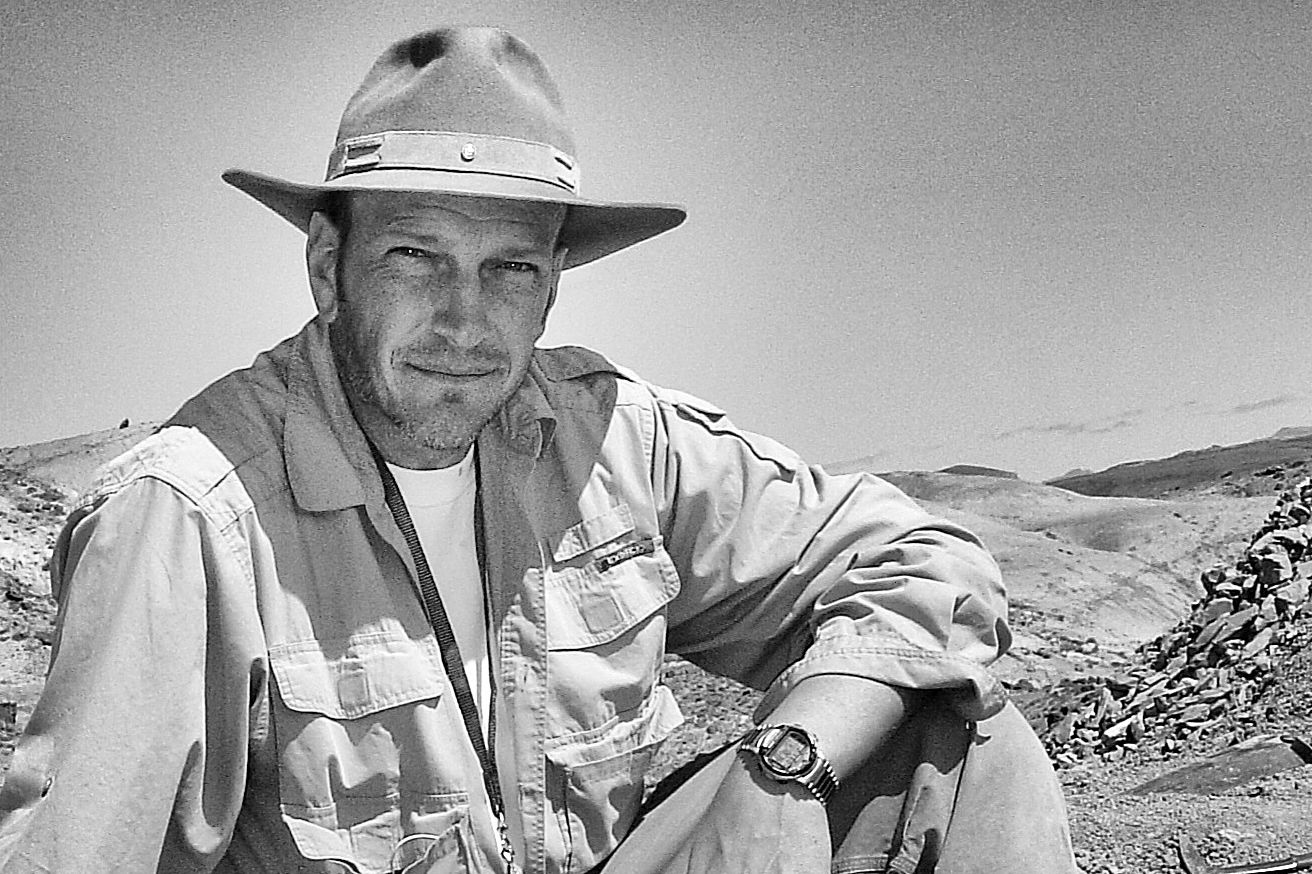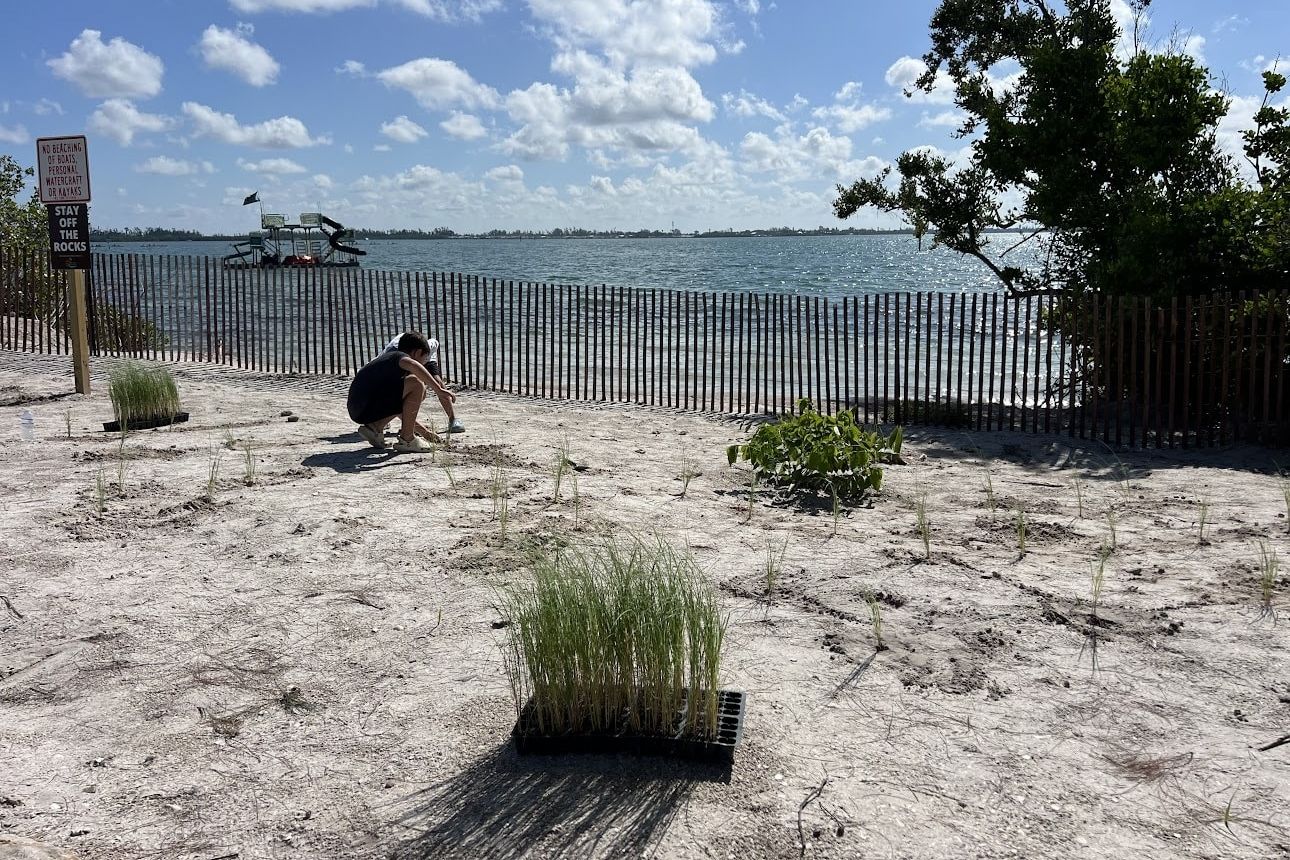This Sarasota Duo Is Killing Invasive Lionfish in a Tiny Yellow Submarine
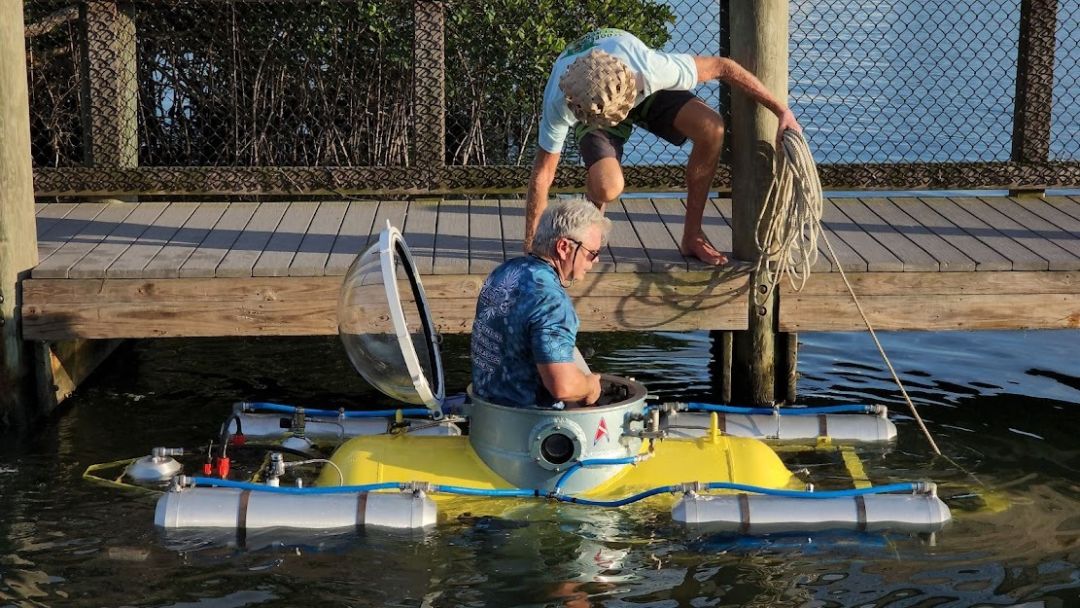
Scott Cassell climbs into Great White, the submarine he built for marine research.
Image: Courtesy Photo
Church of the Redeemer's Father Charleston Wilson has had to bless some unusual objects—for example, a new pilot’s seat on a Delta Airlines flight from Sarasota Bradenton International Airport.
But the recent blessing of a yellow submarine in downtown Sarasota took the cake. The submarine, named Great White, recently embarked on an expedition to research and kill invasive lionfish in the Florida Keys. However, when Wilson sought a submarine-specific blessing in the Book of Common Prayer, “which has a prayer for just about everything,” he says, “there was no section for submarines.”
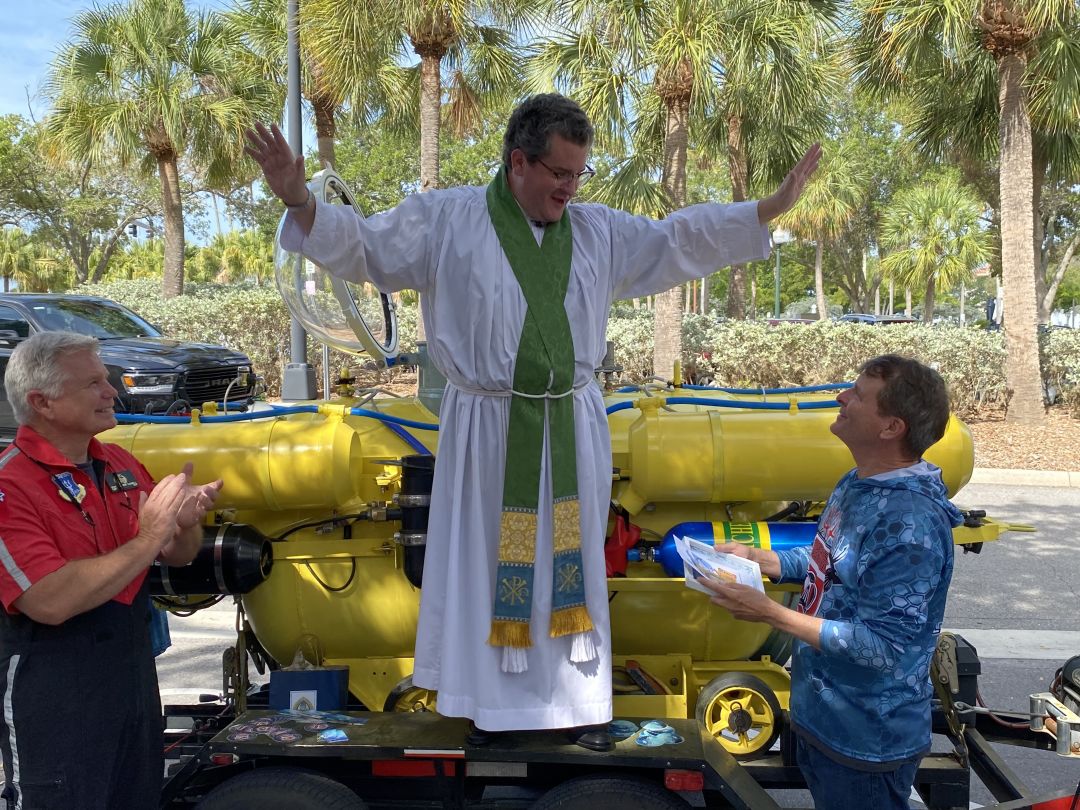
Scott Cassell, Father Charleston Wilson, Scott Gonnello and Great White, the yellow submarine.
Image: Courtesy Photo
So he cobbled it together with some loose marine references, like "God’s love is as deep as the ocean."
"It was delightful,” Wilson says.
And it helped Great White and its operators, Scott Gonnello and Scott Cassell, prepare for their upcoming mission.
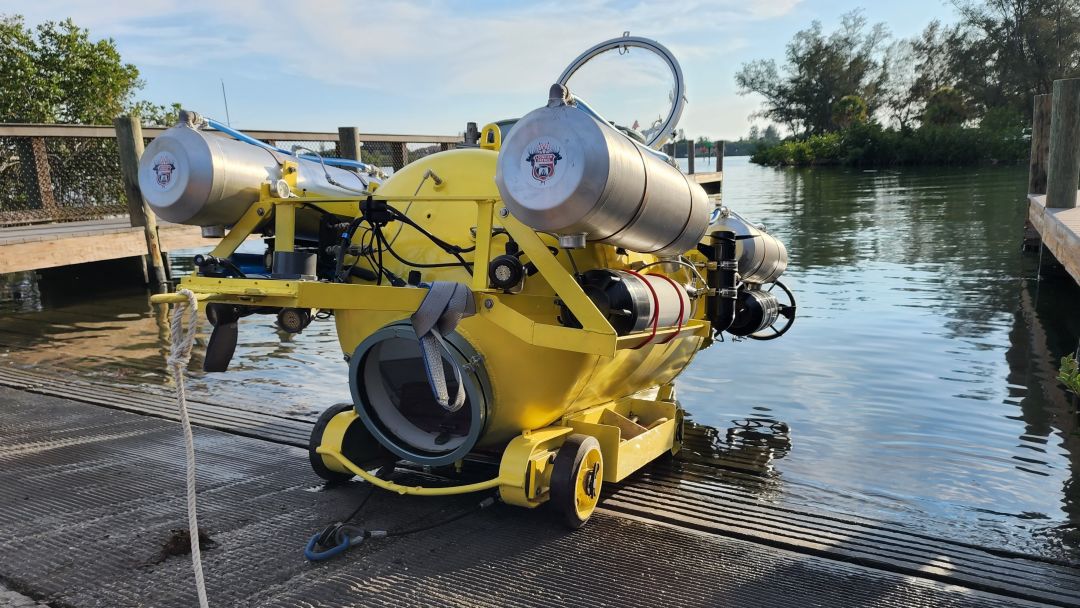
Cassell built Great White over the course of 10 years.
Image: Courtesy Photo
Cassell, 60, who's originally from Napa, California, built Great White with the help of some engineers. It took roughly 10 years and cost $180,000, minus labor costs. As one of roughly a dozen U.S. coastguard submarine pilots in the country, and with more than 900 dives under his belt, you could say he’s obsessed with what goes on underwater. He and Great White have traveled to Brunei, Singapore, the Philippines, Switzerland and beyond to investigate coral bleaching, plastics, pollution and overfishing.
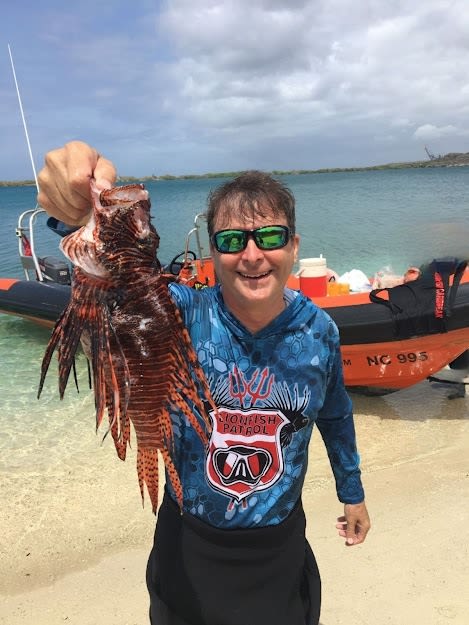
Scott Gonnello with an invasive lionfish
Image: Courtesy Photo
Gonnello, also 60, is the founder of Lionfish Central, a nonprofit dedicated to combating the invasive species, which wreaks havoc on marine ecosystems across the world, including the Gulf of Mexico. Lionfish devour baby game fish like grouper and snapper, as well as the baby fish that help maintain healthy coral reefs, and “anything you like to eat is in extreme danger thanks to them,” explains Cassell, who owns and pilots Great White.
Lionfish Central is also an information and research hub. When Gonnello looked at the lionfish community, "there were so many gaps in knowledge and connection," he says. So he launched an app, a podcast, a video game, and he's working on an educational comic book series for kids. The app, called Lionfish Patrol, lets divers across the world track their lionfish catches and document locations and other data.
Native to coral reefs in the tropical waters of the South Pacific and Indian Oceans, it’s believed that pet owners far and wide released lionfish into the wild, where they flourished in the warm, salty water.
Killing the fish can be a challenge. They don’t bite a hook and only eat baby fish found inside coral reefs, forcing divers to painstakingly spear them one by one. Armed with a submarine, Gonnello and Cassell hope to find a way to harvest them more effectively and go where divers can’t. Plus, Great White can stay underwater for 12 hours at a time.
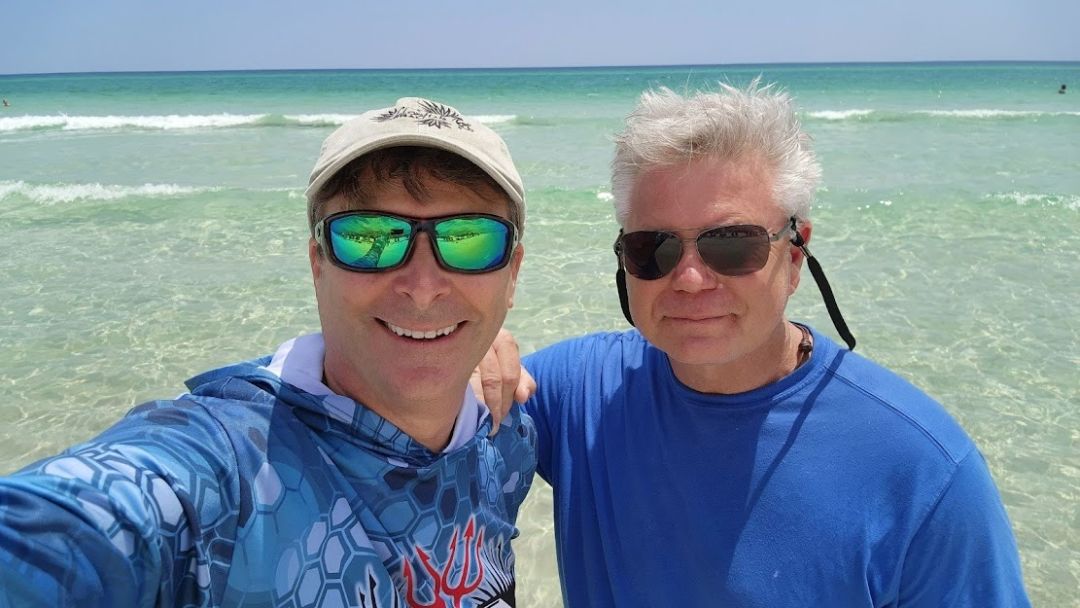
Scott Gonnello, left, and Scott Cassell, right.
Image: Courtesy Photo
During the trek, Gonnello and Cassell are also working on outfitting Great White with a laser for sighting lionfish and honing in on their target, which will let them know when to pull the trigger on a spear. They also plan to build a containment unit for lionfish and sell them to area restaurants to help fund their research. The fish are great in ceviche, tacos and sushi.
After decades of dives, “I've seen the oceans die and change in part because lionfish are devastating fish stocks," Cassell says. "If you like to eat fish, you really need to get on board to kill lionfish."

